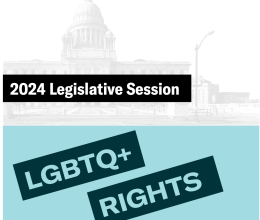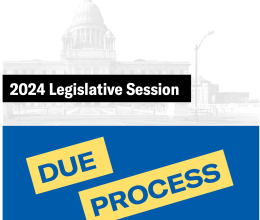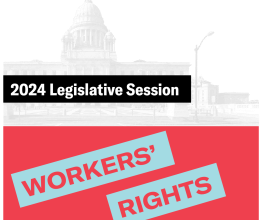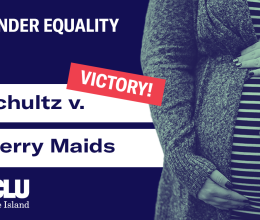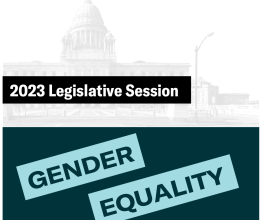
By Hillary Davis, Policy Associate
On May 2, 2013, marriage equality came to Rhode Island. Two years later, same-sex couples in twenty-seven more states have gained the freedom to marry, and the so-called Defense of Marriage Act has come crumbling down. As the nation rallies around same-sex families and the Supreme Court hears arguments in six different marriage cases (two of which are being represented by the ACLU), we’re remembering how far we’ve come, and looking toward where we need to go next.
It took 17 years of advocacy to bring marriage equality to Rhode Island, and none of those years were easy. First came the 1997 introduction of marriage equality legislation, then a virtual non-starter. Soon came the “separate and not equal” solutions. First, domestic partnerships. Then, even as the rest of New England embraced marriage equality, the embarrassing period of civil unions.
Those who thought civil unions would serve as a substitute for equality were quickly proved wrong. Same-sex couples all but refused to obtain civil unions – in the first year , only 68 civil unions occurred. (By contrast, 54 couples married on the first day of marriage equality in New Hampshire.)
Rhode Island’s families refused to accept their unequal status, just as those appearing before the Supreme Court this week refuse to stop fighting. When Rhode Island finally became the tenth state in the nation to grant full marriage equality, the ACLU of RI joined the rest of our neighbors in celebration. We hope these rights will soon be extended to all families, in all states.
But marriage has hardly been the only battle for the LGBT community in Rhode Island, and it will not be the last. Over the years the ACLU has stood for LGBT rights time and again, including:
- In 1976, when the ACLU sued the City of Providence when they refused to permit the city’s first Pride parade to take place;
- In 1984, when the ACLU sued to ensure the R.I. Alliance for Lesbian and Gay Civil Rights could serve as voter registrars after they had been denied by the state Board of Elections;
- In 2004, when the ACLU sued on behalf of a retired schoolteacher who wanted to have her same-sex spouse added to her health insurance plan; and
- In 2007, when the ACLU weighed in on a lawsuit to allow a couple legally married in Massachusetts to divorce in Rhode Island. (Ironically, the couple was forced to stay married because the law did not recognize their marriage to begin with, and therefore did not have a legal mechanism to dissolve a union the state did not recognize.)
Each of these battles has helped to expand the rights of the LGBT community. Equality is never an overnight success. It is a hard-fought battle, and many who started the fight will never get the chance to revel in the results. The ACLU thanks all of those who have fought for so long to get to this point, and we’ll be there with you when the next battle comes.
